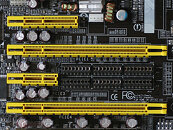Friday, December 4th 2020

AMD Ryzen 3000 and Older Zen Chips Don't Support SAM Due to Hardware Limitation, Intel Chips Since Haswell Support it
AMD Ryzen 3000 "Matisse" processors based on the "Zen 2" microarchitecture, as well as older AMD processors based on "Zen+" and "Zen" microarchitectures, do not support the company's Smart Access Memory (SAM) feature being introduced with Radeon RX 6000 series graphics cards. SAM is essentially a branding of the Resizable Base-Address Register (Resizable-BAR) feature developed by the PCI-SIG; which enables a processor to see a graphics card's entire video memory as a single addressable block, rather than through 256-megabyte apertures. Apparently the PCI-Express root complex of Ryzen 5000 "Vermeer" processors introduce an instruction called full-rate _pdep_u32/64, which is required for resizable-BAR to work.
It gets more interesting—Intel processors have been supporting this feature since the company's 4th Gen Core "Haswell," which introduced it with its 20-lane PCI-Express gen 3.0 root-complex. This means that every Intel processor dating back to 2014 can technically support Resizable-BAR, and it's just a matter of motherboard vendors releasing UEFI firmware updates for their products (i.e. Intel 8-series chipsets and later). AMD extensively advertises SAM as adding a 1-2% performance boost to Radeon RX 6800 series graphics cards. Since this is a PCI-SIG feature, NVIDIA plans to add support for it on some of its GPUs, too. Meanwhile, in addition to AMD 500-series chipsets, even certain Intel 400-series chipset motherboards started receiving Resizable BAR support through firmware updates.
Sources:
CapFrameX (Twitter), flyrobot27 (Reddit), University of Science and Technology of China
It gets more interesting—Intel processors have been supporting this feature since the company's 4th Gen Core "Haswell," which introduced it with its 20-lane PCI-Express gen 3.0 root-complex. This means that every Intel processor dating back to 2014 can technically support Resizable-BAR, and it's just a matter of motherboard vendors releasing UEFI firmware updates for their products (i.e. Intel 8-series chipsets and later). AMD extensively advertises SAM as adding a 1-2% performance boost to Radeon RX 6800 series graphics cards. Since this is a PCI-SIG feature, NVIDIA plans to add support for it on some of its GPUs, too. Meanwhile, in addition to AMD 500-series chipsets, even certain Intel 400-series chipset motherboards started receiving Resizable BAR support through firmware updates.

88 Comments on AMD Ryzen 3000 and Older Zen Chips Don't Support SAM Due to Hardware Limitation, Intel Chips Since Haswell Support it
Hopefully this will be another kick for AMD to "find a way" to introduce SAM on older AMD CPUs that are compatible with the same motherboards that support the latest AMD CPUs.
If old(er) Intel boards requiree UEFI update to support it anyway, how many manufacturers are going to release an UEFI update!? Not many I expect..
QUESTION; If the motherboard does not have SAM enabled, will Nvidia be able to "enable" it thru drivers anyway!?
I'll wait for a correction of the O.P. or myself, preferably the former.
Parallel Bits : Zen 2 = 300 cycle latency , Zen 3 = 3 cycle latency
Deposit/Extreact : Zen2 = 250 cycles per 1 , Zen 3 = 1 cycle latency
This is almost Zen2 is 1% of Zen 3 Performance.How about Intel.Is there any info ?
I wonder how many more features like this, that these companies are sitting on and could implement anytime? I bet Intels little 2-4% perf bumps are nothing more than a microcode update. Shame that there are no tech journalists left to uncover stuff like this anymore.
Being a PCI-SIG standard, since PCI-e 3.0 at least, I'm waiting to see Intel's 4600 IGPs all over the place getting a (possible) boost just because of this, while the OG Ryzens sit in the sidewalk. :(Not really hard to understand when that game had a known and usual development target/focus for a kind of system with a single RAM pool that is accessed by both GPU & CPU (consoles if you haven't guessed it), what differs is how the addressing is made, so if a game were to be ported and then just added the different calls to suit a different type of x86 arch implementation, means the original calls are still there too, unlike other optimizations where those calls might get replaced instead.
Over-simplifying the complex, but I hope it makes sense. :laugh:
But in that case, it could be backported, and I'd suggest AMD does that for the good PR.
Still, at least they found an improvement that hadn't been found before, and I can understand only mentioning it for their own CPUs/GPUs for obvious reasons.
...wait
I will finally enjoy SAM with my rx6800XT. Thank you AMD for taking your customers for idiots.
That guy probably rocking older board, like x370, and getting 5000 series mean board swap